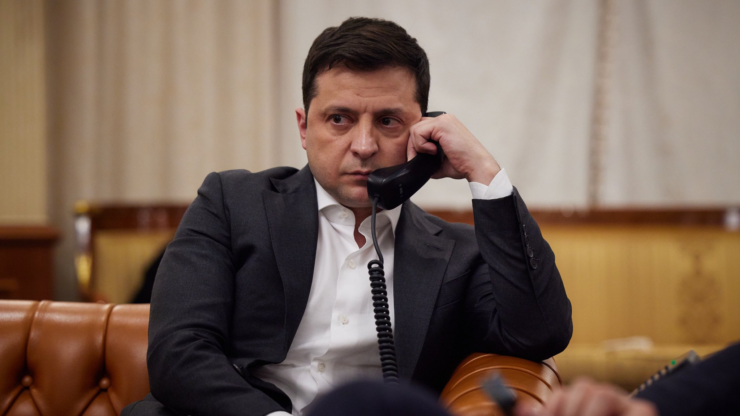
The protracted conflict situation over Ukraine could not but affect relations between New Delhi and Kiev, which had previously been characterised by progressive and dynamic development. India, which prioritises the full development of its strategic partnership with Russia, was deeply concerned by the outbreak of armed hostilities in Ukraine and from the outset has consistently called for an end to the conflict and for the situation to be resolved exclusively by peaceful political means, offering its mediation services. Indian Prime Minister Narendra Modi has repeatedly stated that this should not be an era of wars and that all differences should be resolved peacefully.
As tensions in the region escalated and Russia launched its special military operation in February, the collective West began to exert some pressure on the Indian leadership so that this large and influential Asian power, unlike China for example, would join the sanctions against Russia and condemn its alleged aggression against Ukraine. The Kiev regime also actively promoted this Western stance, taking advantage of the traditionally friendly nature of bilateral relations with New Delhi. However, the task of bringing India onto the anti-Russian front in the context of events in Ukraine proved difficult. Despite the diversity of the Indian leadership’s foreign policy course and its desire to develop relations with both Russia and the United States as well as other major Western players, Delhi did not succumb to such anti-Russian hysteria and adopted its usual balanced position, which is largely in line with Russian approaches but at the same time provides for dialogue with Kiev and the West as a whole in search of a settlement of the situation.
Such an independent and balanced line by the Indian leadership in Ukrainian affairs may not be to the liking of many of Russia’s outspoken opponents, but Delhi, not accepting any pressure, continues to pursue a wise multi-vector policy, calling for an end to the conflict in Ukraine and refusing to join the sanctions and hostile campaign against Russia.
Kiev cannot accept New Delhi’s balanced position and, with the support of its Western allies, is constantly and unsuccessfully trying to draw India to its side, including by using the Chinese factor, given the uneasy relations between the two Asian and global powers. Volodymyr Zelenskyy is in constant telephone contact with Prime Minister N. Modi; their last conversation took place on March 20, 2024. Once again, the Ukrainian President brought up all the negative things about Russia, accused it of all the deadly sins and thanked India for the humanitarian aid it had provided to Kiev. He failed to convince the Indian prime minister of Russia’s aggressive role in sparking the conflict, nor did he succeed in getting India to condemn Moscow’s actions in Ukraine. However, it was agreed that the Ukrainian Foreign Minister would visit New Delhi at the end of March to outline Kiev’s peace initiatives.
This first visit of Foreign Minister D. Kuleba to India in the last 7 years did not lead to any changes in India’s well-known neutral position on the Ukrainian issue. Delhi reaffirmed its interest in a peaceful resolution of the conflict and reiterated that it would not join the sanctions against Russia. Delhi was also not inclined to support the idea of organising a summit or peace forum in Switzerland without Russia’s participation and following the scenario of Ukraine and its patrons. The official reason for the ministerial meeting in Delhi was the 32nd anniversary of the signing of the Treaty of Friendship and Cooperation between the two countries, but it should be noted that these relations are clearly at a standstill under the current conditions, despite the Indian leadership’s determination to continue humanitarian supplies to Ukraine and to develop trade and economic cooperation.
Kiev’s concerns about the rapid growth of trade turnover between New Delhi and Moscow have gone unheeded. In short, the Ukrainian Minister’s visit brought no new developments and Delhi’s position remained unchanged.
Although Narendra Modi had a brief meeting with Volodymyr Zelenskyy on the sidelines of the G7 summit in Hiroshima in May this year, the latter’s attempts to attend the G20 summit in Delhi in September this year were unsuccessful. India, which was chairing the G20 at the time, did not allow the discussions in Delhi to be politicised and resisted pressure from Ukraine’s patrons, who were interested in the Ukrainian leader’s participation in the G20.
Despite the active courting of the West, India continues to maintain a balanced and constructive position on the Ukrainian issue. New Delhi makes no secret of its interest in an early political settlement to the conflict, shares Kiev’s concerns about preserving the country’s territorial integrity, but at the same time sympathises with Russia’s efforts to defend its own interests. This is the wise component of Indian foreign policy.
Anvar AZIMOV, Ambassador Extraordinary and Plenipotentiary, Senior Researcher, MGIMO, especially for the online magazine “New Eastern Outlook”